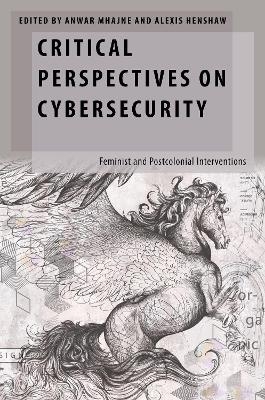
Critical Perspectives on Cybersecurity
Oxford University Press Inc (Verlag)
978-0-19-769589-0 (ISBN)
Critical Perspectives on Cybersecurity offers a new approach to understanding cybersecurity in international relations. As a counterpoint to existing work, which focuses largely on the security of states, private actors, and infrastructure, chapter authors examine how women and communities across the Global South understand "cybersecurity," including what threats and forms of resistance are most important to them. They make the case that policies need to consider individual human rights by putting people's empowerment and wellbeing at their center. Drawing on feminist and postcolonial theory, the chapters also cover issues that challenge conventional notions of cybersecurity, including disinformation, gender-based violence online, and technology as a neocolonial force. Bringing together contributions from a globally diverse range of authors, Anwar Mhajne and Alexis Henshaw provide a human security perspective on cybersecurity that pays attention to the interplay of race, ethnicity, gender, class, and other social hierarchies, especially regarding cybersecurity in the Global South.
Anwar Mhajne is an Assistant Professor of Political Science at Stonehill College. She specializes in international relations and comparative politics. Her research focuses on gender, religion, cybersecurity, digital politics, disinformation, and Middle Eastern politics. Her writing has been featured in the Journal of Women, Politics & Policy, International Feminist Journal of Politics, Political Research Quarterly, Religion and Politics, Culturico, The Carnegie Council for Ethics in International Affairs, Foreign Policy, The Conversation, The Times of Israel, Haaretz, Middle East Eye, +972 Magazine, Quartz, The Defense Post, The Jerusalem Post, Carnegie Endownment for International Peace, Al Bawaba, The New Arab, and The National, among others. Alexis Henshaw is Associate Professor of Political Science at Troy University. Her research interests include civil conflict, gender issues in international security, and Latin American politics. She is the author of Why Women Rebel: Understanding Women's Participation in Armed Rebel Groups (Routledge, 2017) and Digital Frontiers in Gender and Security (Bristol University Press, 2023), and is a co-author of Insurgent Women: Female Combatants in Civil Wars (Georgetown University Press, 2019). Her work has also appeared in International Feminist Journal of Politics, Foreign Policy Analysis, Studies in Conflict and Terrorism, Journal of Global Security Studies, and Politics & Gender.
Introduction
Anwar Mhajne (Stonehill College) and Alexis Henshaw (Troy University)
I. Emerging Issues in Cybersecurity: Gender, Geography, Policy, and Practice
Chapter 1: A Call for Human Security in Cyber: Implementing United Nations Security Council Resolution 1325 on Women, Peace and Security in Cyberspace
Crystal Whetstone (Bilkent University) and Luna K.C. (University of Northern British Columbia, Canada)
Chapter 2: Cyberspace and the Nouveau Colonialism
Erin Saltman (Global Internet Forum to Counter Terrorism) and Dina Hussein (Meta)
II. Cybersecurity and Society in the Global South
Chapter 3: Gendered and Postcolonial Perspectives on Data Weaponization in Armed Conflict: The Case of Afghanistan
Julia Hofstetter (ICT4Peace Foundation)
Chapter 4: Transnational Authoritarianism in Cyberspace: A Case Study of Uyghurs
Murat Yilmaz (Kastamonu University)
Chapter 5: Disciplinary Power and Feminism: Nudity as Resistance to Cyber Space Bullying in Kenya
Margaret Monyani (University of Johannesburg, South Africa) and Allan Wefwafwa (University of the Witwatersrand, South Africa)
Chapter 6: The Application of IHL on Israeli's Cyber Strategies Against the Palestinians
Anwar Mhajne (Stonehill College)
Chapter 7: Capacity Building and Cyber Insecurity in Latin America: Geopolitics, Surveillance, and Disinformation
Alexis Henshaw (Troy University)
Conclusion
Anwar Mhajne (Stonehill College) and Alexis Henshaw (Troy University)
Index
| Erscheinungsdatum | 22.02.2024 |
|---|---|
| Reihe/Serie | Oxford Studies in Gender and International Relations |
| Verlagsort | New York |
| Sprache | englisch |
| Maße | 156 x 235 mm |
| Themenwelt | Sozialwissenschaften ► Politik / Verwaltung ► Europäische / Internationale Politik |
| Sozialwissenschaften ► Politik / Verwaltung ► Staat / Verwaltung | |
| Sozialwissenschaften ► Soziologie ► Gender Studies | |
| ISBN-10 | 0-19-769589-2 / 0197695892 |
| ISBN-13 | 978-0-19-769589-0 / 9780197695890 |
| Zustand | Neuware |
| Haben Sie eine Frage zum Produkt? |
aus dem Bereich


